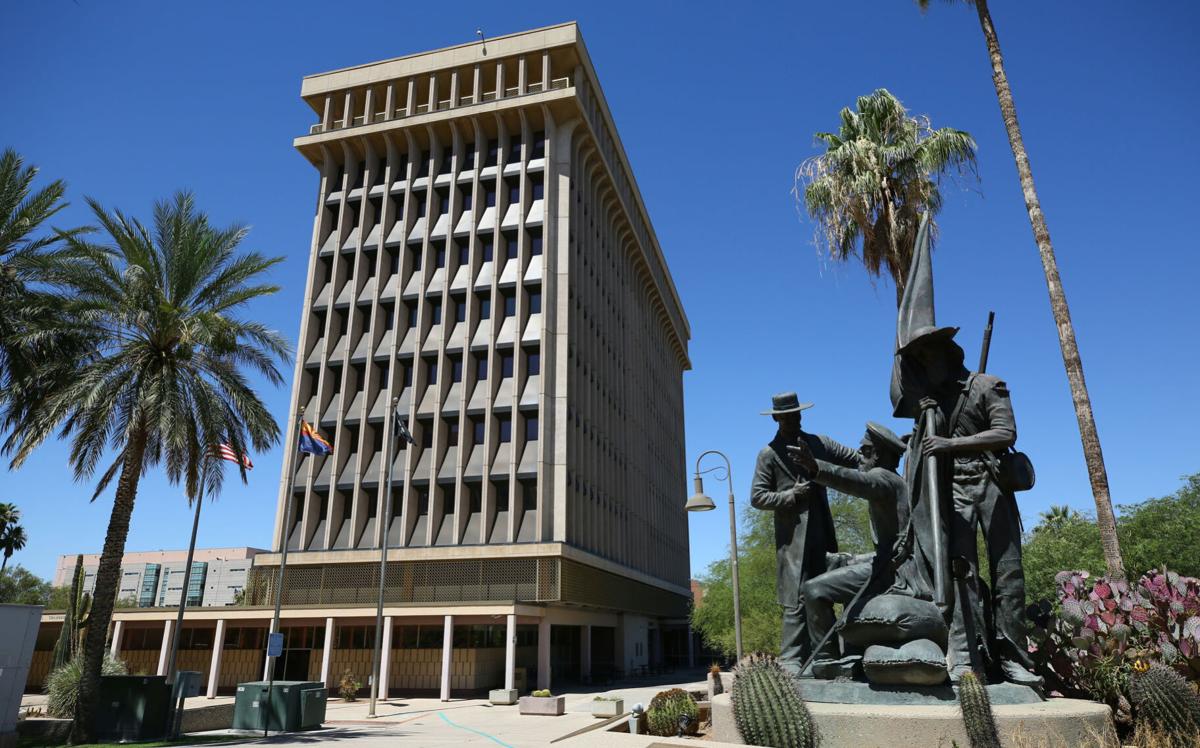The Tucson City Council approved a mandatory curfew that will go into effect at 10 p.m. Friday, Dec. 4.
At the request of Mayor Regina Romero the council unanimously approved the nightly curfew from 10 p.m. to 5 a.m. It is scheduled to expire the morning of Dec. 23. The mayor had originally asked for the curfew to start Tuesday and run nightly from 8 p.m. to 5 a.m.
Pima County is already under a voluntary curfew.
The city curfew would prohibit anyone from being on public streets or spaces inside the city of Tucson unless traveling to work or other essential activities. Public safety personnel, health-care professionals, essential workers and the homeless would also be exempt from the curfew.
“We are at an inflection point, and our actions today will determine what happens in the next three weeks,” Romero said Monday. “My colleagues on the council and I are asking each and every Tucsonan to do their part to slow the spread, especially for our family and friends working in our hospitals. We need statewide action, and I strongly urge Gov. (Doug) Ducey to act swiftly to protect the health of Arizonans.”
City Attorney Mike Rankin said the Tucson Police Department will focus on education first when it comes to curfew enforcement. Residents who break curfew will be given an opportunity to comply before receiving a citation. If citations are issued, the resident will have the opportunity to complete diversion or some other non-criminal proceeding. During the state’s first shelter-in-place order in April, TPD issued 12 citations.
The mandatory curfew comes as COVID-19 transmission reaches new heights throughout the county. In November, the Pima County Health Department recorded nearly four times the number of cases that were reported in October, surpassing the county’s previous peak over the summer.
As of Monday, Pima County had 39,859 coronavirus cases, with 691 deaths; Arizona has had 326,817 cases with 6,639 deaths. Pima County’s testing is showing an 8% positivity rate, according to the latest numbers from the state.
In addition to the curfew, the council was also scheduled to vote Tuesday night on additional economic relief for workers, families and small businesses as the pandemic continues. The city has approximately $14 million in CARES Act funding left to spend before the end of the year.
Even as the city works to pass the curfew to curb the spread of COVID-19, there are still concerns that people from outside the community would not adhere to the ordinance. Romero and other local officials have urged Gov. Dough Ducey in recent weeks to implement a statewide mask mandate and shelter-in-place order.
“I would much rather this be a statewide mandate,” Romero said. “The city of Tucson does not live in a bubble. Any mandate that we have, we are expecting Tucsonans to help us with and, of course, we’re expecting residents that live in towns surrounding Tucson to follow the laws of the city.”
When asked about the city’s authority to mandate a curfew, Rankin said the Tucson municipal government is given that authority under state and local codes. Pima County implemented a voluntary nightly curfew for residents last week but does not have the authority to mandate a curfew as a state entity.
“State law gives the governor certain emergency powers, but it does not give him the authority to wipe away the legal authority of other officials who are also given emergency powers, including under the state statutes themselves under Arizona law.
“So this is not a challenge to state authority, but it is using the local authority that is provided under Arizona law to adopt these kind of measures that are necessary for public health and safety.”
Daniel Scarpinato, a spokesman for Ducey, refused to comment about whether his boss believes that cities can, in fact, enact their own curfews or whether that runs afoul of the gubernatorial preemption.
The governor has not enacted a curfew in the state and this measure could spark a legal fight with the governor's office.
"We haven't seen the specifics yet,'' he said. "So when we get the specifics we'll have our general counsel review it.'





